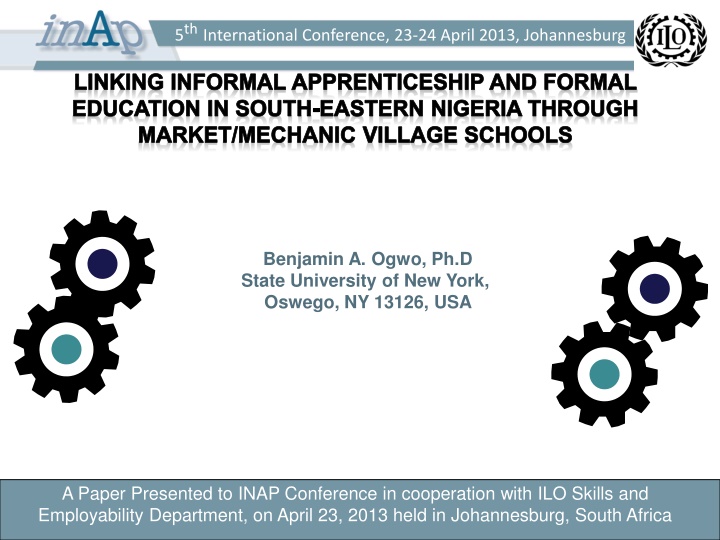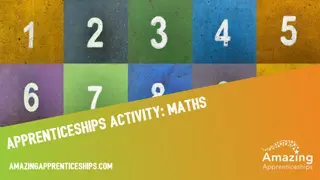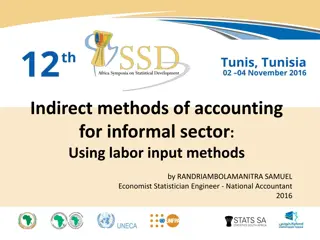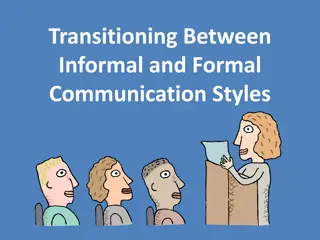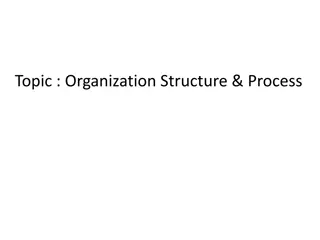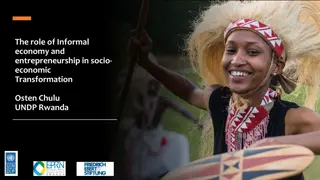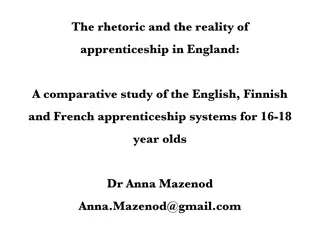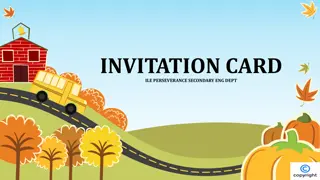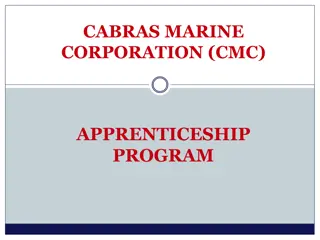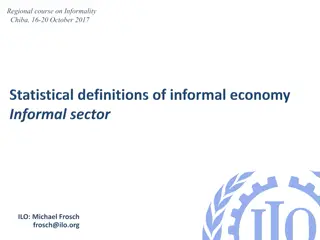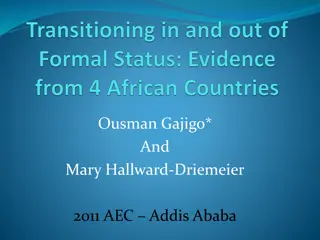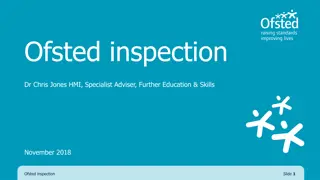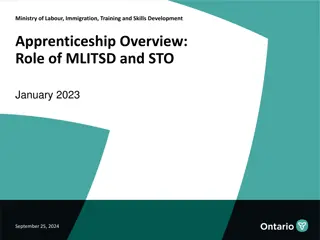Linking Informal Apprenticeship and Formal Education in South-Eastern Nigeria
This paper presented at the 5th International Conference in Johannesburg explores the intervention of Market/Mechanic Village Schools in linking informal apprenticeship and formal education in South-eastern Nigeria. It discusses the historical background, objectives, process, and outcomes of the intervention, aiming to improve education and skills training for individuals in the region.
Download Presentation

Please find below an Image/Link to download the presentation.
The content on the website is provided AS IS for your information and personal use only. It may not be sold, licensed, or shared on other websites without obtaining consent from the author.If you encounter any issues during the download, it is possible that the publisher has removed the file from their server.
You are allowed to download the files provided on this website for personal or commercial use, subject to the condition that they are used lawfully. All files are the property of their respective owners.
The content on the website is provided AS IS for your information and personal use only. It may not be sold, licensed, or shared on other websites without obtaining consent from the author.
E N D
Presentation Transcript
5thInternational Conference, 23-24 April 2013, Johannesburg LINKING INFORMAL APPRENTICESHIP AND FORMAL EDUCATION IN SOUTH-EASTERN NIGERIA THROUGH MARKET/MECHANIC VILLAGE SCHOOLS Benjamin A. Ogwo, Ph.D State University of New York, Oswego, NY 13126, USA A Paper Presented to INAP Conference in cooperation with ILO Skills and Employability Department, on April 23, 2013 held in Johannesburg, South Africa
5thInternational Conference, 23-24 April 2013, Johannesburg highlight the process, nature, and scope of the Market & Mechanic Village Schools (MMVS) intervention on linking informal apprenticeship and formal education in South-eastern Nigeria. Context and Historical Reasons for the MMVS eastern Nigeria through Market & Objective Mechanic Village School (MMVS) Linking Informal apprenticeship and formal education in South- Sequence The ETF MMVS Intervention Process (R & D) Features of the UNICEF and the Redesigned MMVS Curricula Overview of the ICT Component of the MMVS Prospects of MMVS in South Eastern Nigeria Conclusions and Closing Thoughts
5thInternational Conference, 23-24 April 2013, Johannesburg Context and Historical Reasons for the Market Mechanic Village Schools 1 2 3 4 Origin of Market Mechanic Schools UNICEF initiative (1996) Provision of basic literacy for the apprentices Combine work & school thrice per week(12 2 pm) Scope of the intervention Improved curricula ICT integration Certification People of South Eastern, Nigeria Reason for Market Mechanic School Intervention Low enrolment Low repute No certificate Patriarchal society (Male dominance) Achievement Oriented
5thInternational Conference, 23-24 April 2013, Johannesburg The Market/Mechanic Village Schools Intervention Process (R & D) Level 1: Survey on increased male enrolment in informal Apprenticeship Level 2: Study tour to India (NIOS) & Don Bosco Tech. Level 3: Study to Botswana (BOCODOL) & Bridge centre Image:Flag of Botswana.svg Level 4: Stakeholders Interactive Forums and the Curricular outputs
5thInternational Conference, 23-24 April 2013, Johannesburg Features of the UNICEF and the Redesigned Market/Mechanic Village School Curricula UNICEF out-of-school Curriculum Basic Literacy subjects: Mathematics, English and Life coping skills Classes are held thrice a week (12 2 pm) No certification Basic and secondary school curriculum into a more flexible two-year programme. Current National Standard Curricula Highlights of MMVS Redesigned curricula Thematic restructuring of the two existing basic education curricula and UNICEF curriculum into one flexible (lower and middle basic curricula) curriculum to be completed in three years Thematic restructuring of the existing Upper Introduction of Life coping skills from the UNICEF out-of-school curriculum as a new basic education subject: The subject entails ethics, Information Communication Technology, Health and Physical Education etc Nine years Compulsory basic Education - Three years (lower, middle & upper Basic curricular) Three year Secondary Education Classes are held five days a week (8:00 am 2:00 pm) Certification (First School Leaving Cert. & General Certificate of Education) Market School students will be sitting for the same certification examination with every other equivalent level students in the country.
5thInternational Conference, 23-24 April 2013, Johannesburg Features of the Redesigned Market/Mechanic Village School Curricula contd: ICT Delivery mode and open learning principles Introduction of ICT-based interactive tutors that will supplement face-to-face instruction and ensure more flexible curriculum implementation. Dynamic-profiled intelligent tutors for the Market/Mechanic Village School that provide immediate feedback and remedial measures in the course of a particular lesson. The Market/Mechanic Village School tutor redirects learners to appropriate content without explicitly allowing feedback on poor performance to discourage them from completing the lesson.
5thInternational Conference, 23-24 April 2013, Johannesburg Overview of the ICT Component of the Market/Mechanic Village School Sample of the Learning Object (LO) for a lesson on life coping skills: AIDS a threat to human society
5thInternational Conference, 23-24 April 2013, Johannesburg Overview of the ICT Component of the Market/Mechanic Village School contd:
5thInternational Conference, 23-24 April 2013, Johannesburg Prospects of Market/Mechanic Village School in South Eastern Nigeria Linking informal Apprenticeship and formal education in Nigeria Open learning approach will guarantee learning for all and increased enrolment There will be increased interest among the apprentices on the use of ICT for studies and application of open learning principles Faulty Implementation could possibly ruin this laudable initiative There is need for stronger political will by the state governments to implement the curricula within the 2013/2014 academic year
5thInternational Conference, 23-24 April 2013, Johannesburg There are lots of prospects for the use of ICT in improving informal apprenticeship in Africa Development agencies should support more initiatives on informal apprenticeship transformation Peer learning Programme on informal Apprenticeship among African countries should be established Linking informal Apprenticeship and Formal Education in Africa
